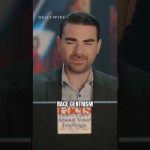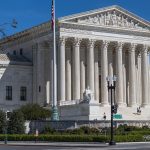In a world where free speech seems more fragile than ever, recent statements from Donald Trump have reverberated with an urgency that demands reflection. As people ponder the implications of censorship and its roots in modern society, they are reminded of history’s most successful democracies built on the foundation of unimpeded dialogue. Trump’s words echo a sentiment that has long been woven into the fabric of American identity: without free speech, a free nation cannot exist.
In his detailed plan announced on November 8, Trump paints a stark picture of today’s landscape, where bureaucratic power, corporate interests, and ideological enforcement converge to stifle voices that do not conform. This depiction resonates with historical warnings about the dangers of unchecked authority. Just as past leaders have grappled with the tension between governance and liberty, the current discourse compels citizens to ask critical questions about their own rights. The idea that a “censorship cartel” exists, conspiring against the very bedrock of democracy, carries profound implications not just for the present but for generations yet to come.
The call to dismantle this supposed cartel is reminiscent of historical movements when citizens rallied against overwhelming odds to reclaim their rights. If freedom of expression is allowed to wither, the ramifications are political and deeply personal. Individuals may be silenced, unable to voice their thoughts or share their truths. Such a chilling reality has seldom been more vivid, as recent events demonstrate the ease with which information can be manipulated and lives affected. A robust discourse is critical to the survival of democracy; therefore, empowering citizens to reclaim their right to free speech should be paramount.
As Trump outlines his plan to investigate and address potential abuses, he invokes a moral imperative that resonates with many Americans. The necessity of safeguarding civil rights against governmental encroachment is a lesson deeply embedded in the nation’s consciousness. The struggle for individual liberties—whether in the context of civil rights movements or through the expression of dissent—has defined political landscapes and shaped national identity. It compels the public to reflect on the current state of their freedoms and to rally against any form of censorship, even when it occurs to protect the greater good.
The proposition of a Digital Bill of Rights introduces a contemporary twist to these timeless considerations. In the digital age, where information flows freely yet is easily regulated, the notion that individuals should have control over their online presence is not merely novel but necessary. Just as citizens have fought for physical spaces to express their beliefs, they must now advocate for virtual realms. The right to navigate the online world without restrictions is, in many ways, the frontier of free speech today—a challenge that demands vigilance from every American.
Engaging with these ideas transcends the political spectrum; it invites thoughtful debate about the very essence of freedom. The story of democracy is one of constant evolution—a dialogue shaped by each generation’s struggles and victories. As today’s citizens confront the specter of censorship and consider their roles in defending their freedoms, they may find a renewed sense of purpose and a deeper appreciation for the sacrifices made by those who came before them. The calling for free speech is not just about politics; it is about preserving the core of what it means to be part of a thriving democratic society. And as history has shown, the battle for these rights is a story older than time itself—one that is far from over.




